
Frontline healthcare workers are experiencing burnout – a disillusionment with their job that is emotionally, physically, and mentally draining. It’s a natural response to the realization that an endless cycle of working to live is all-consuming.
In this course, Dr. Helen Sairany discusses timely issues related to the healthcare and workforce.
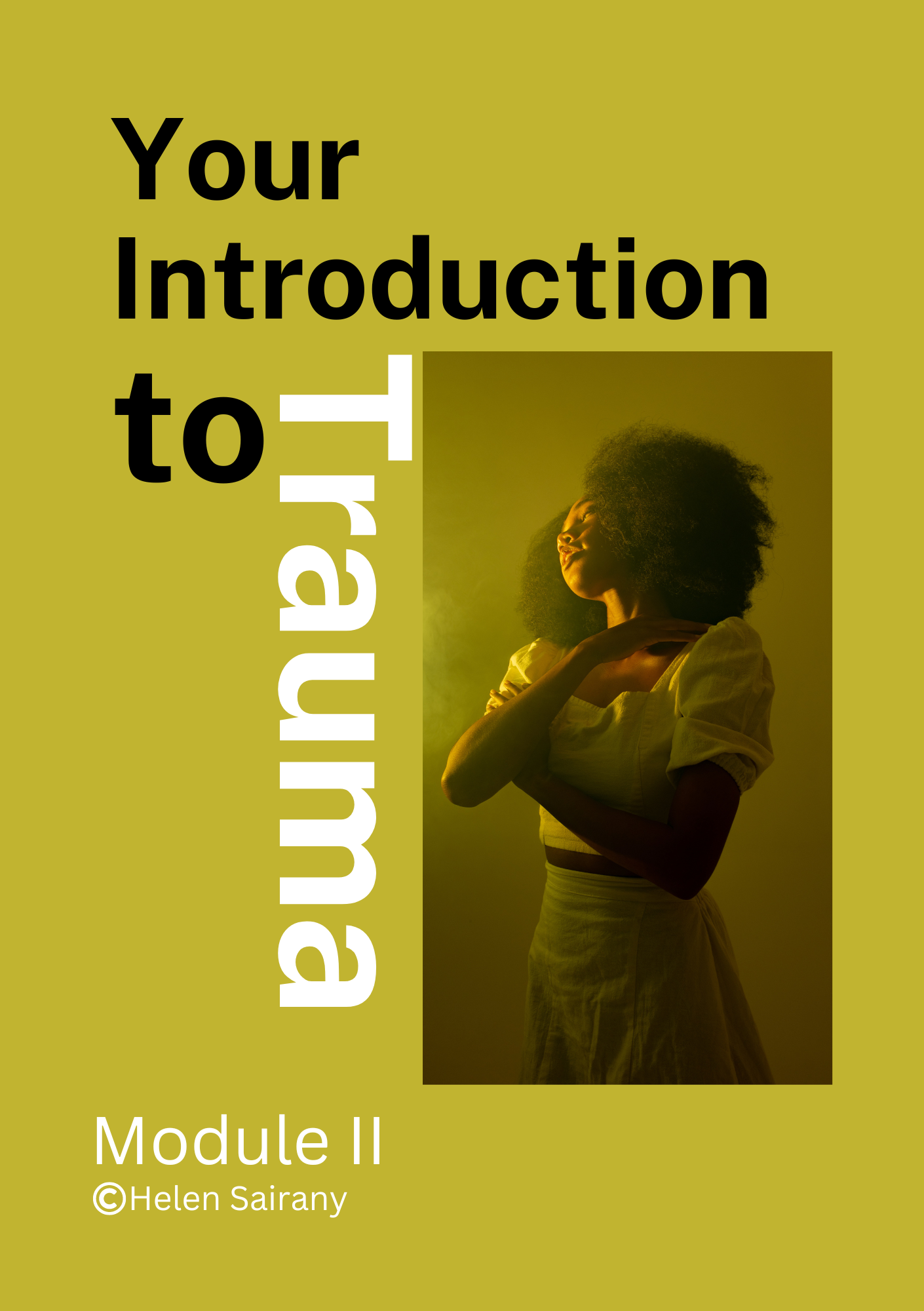
Traumatic experiences impact different aspects of our lives, making it difficult to determine where we stand on the broad spectrum of trauma. It’s important to ask, “What is trauma?” since the term is often overused and inaccurately applied in society.
In this course, Dr. Helen Sairany discusses timely issues related to trauma and effective approaches on how to regulate the body’s stress response.
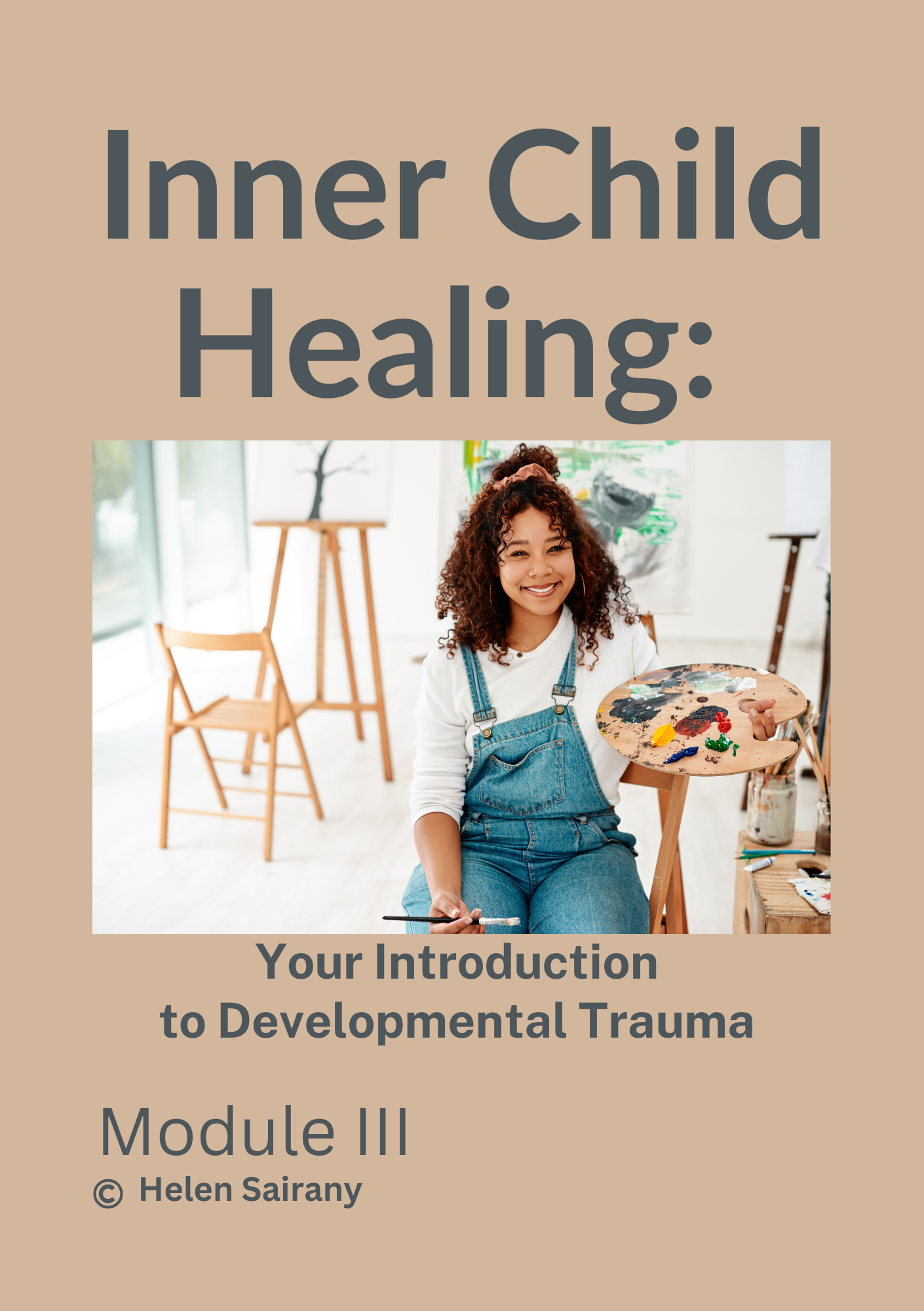
In the first year of life, the majority of a child’s sensory input comes from the caregiver and family environment. The things children are exposed to at an early age become their personal worldview as they grow.
In this module, Dr. Helen Sairany, will talk about the human brain development, the concept of inner child and how to reparent the inner child.
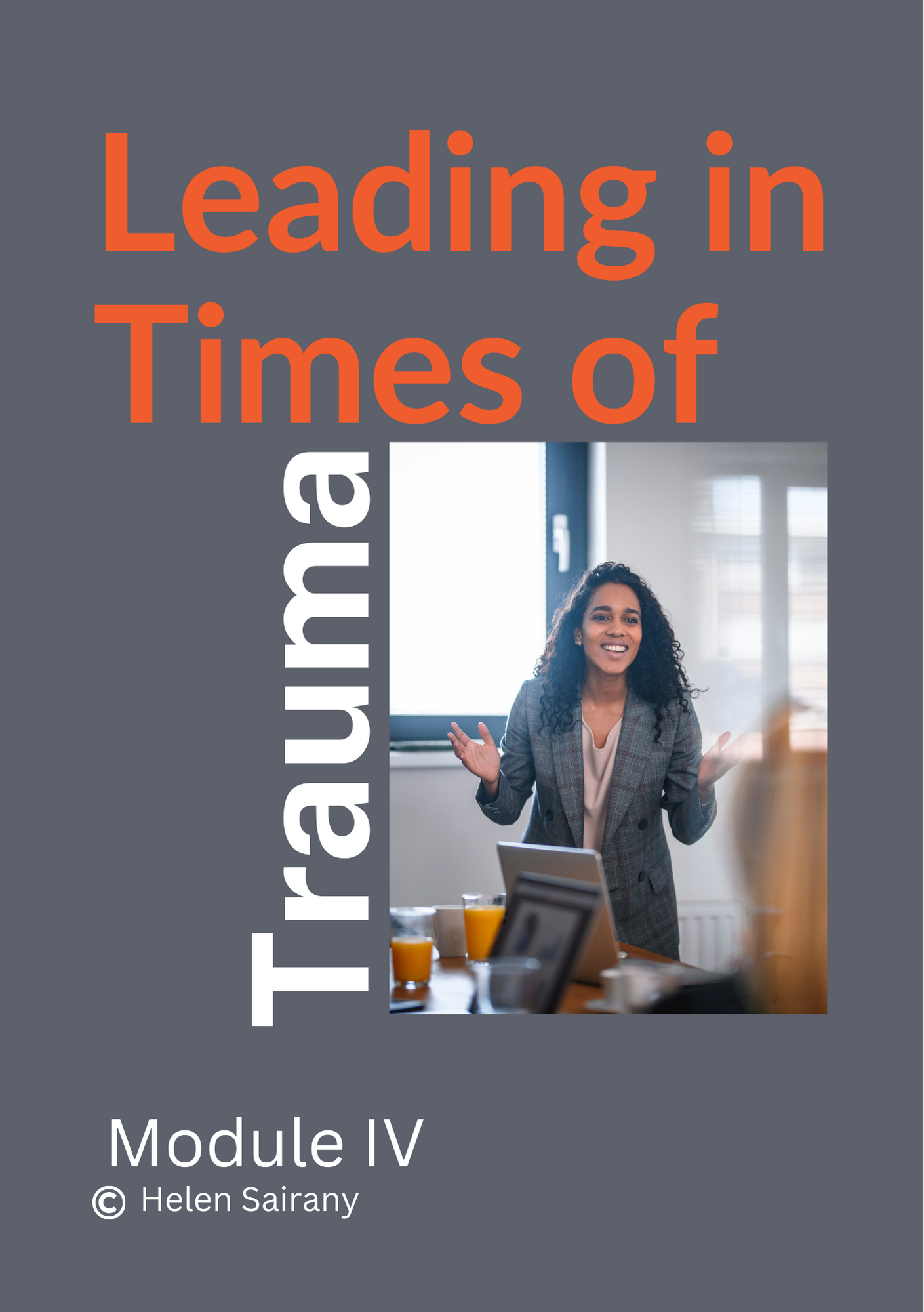
Leaders often face unexpected challenges as they ascend to the top. Some start with good intentions, but soon realize that leadership is not as glamorous as they thought. It involves dealing with competing priorities, deciding where to focus attention, and managing limited time.
In this course, Dr. Helen Sairany will talk about the trauma associated with the position of leadership and how work can provide a supportive environment for overcoming leadership
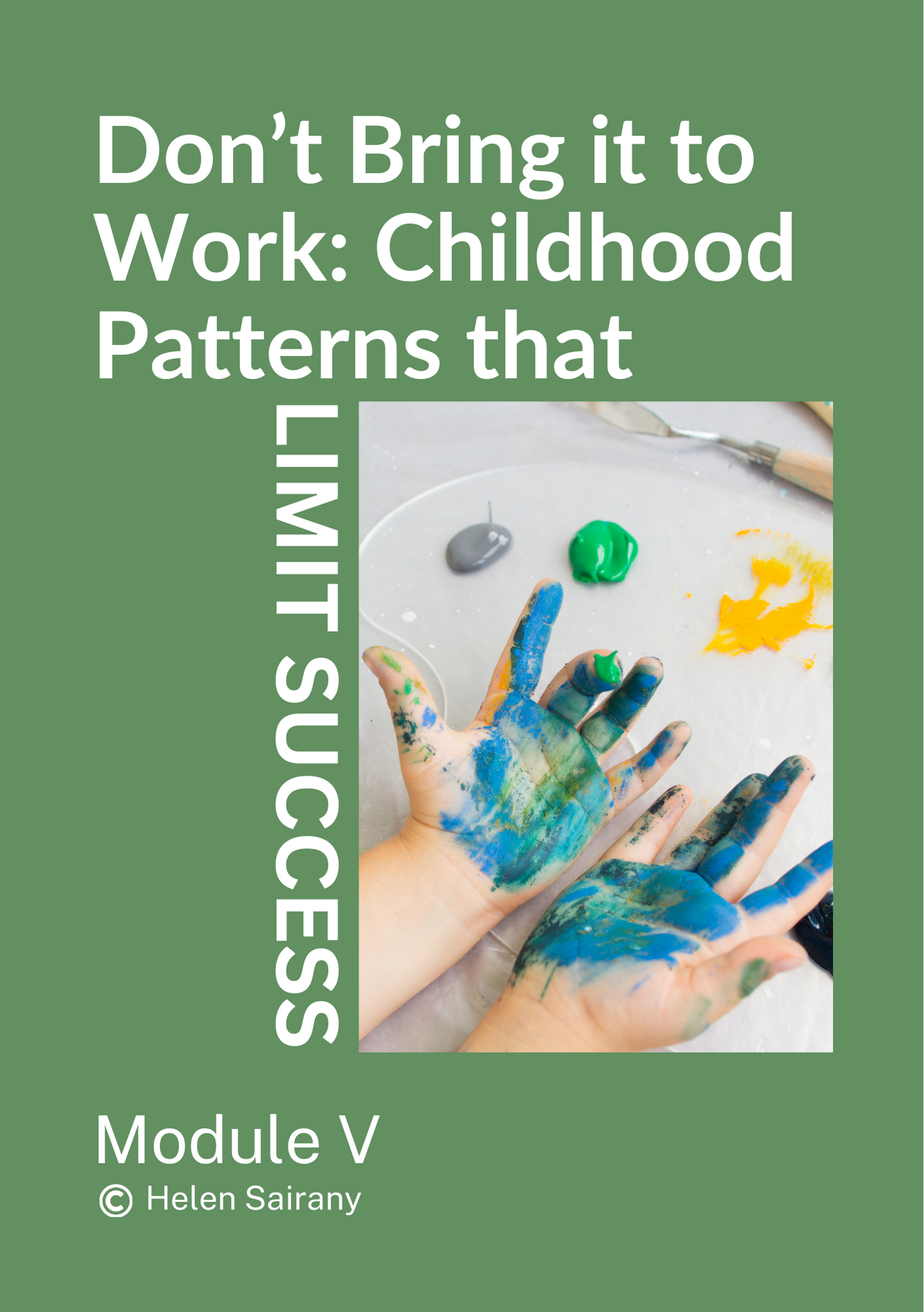
Families and work groups are structurally similar. The day-to-day working of both systems are fundamentally the same. It is not surprising then that home and work relationships flow quite naturally into each other. Thus, there is no such thing as work-life balance; they are one in the same.
In this course, Dr. Helen Sairany will review the relationship between family systems and work systems and how childhood hurts can surface at the workplace.
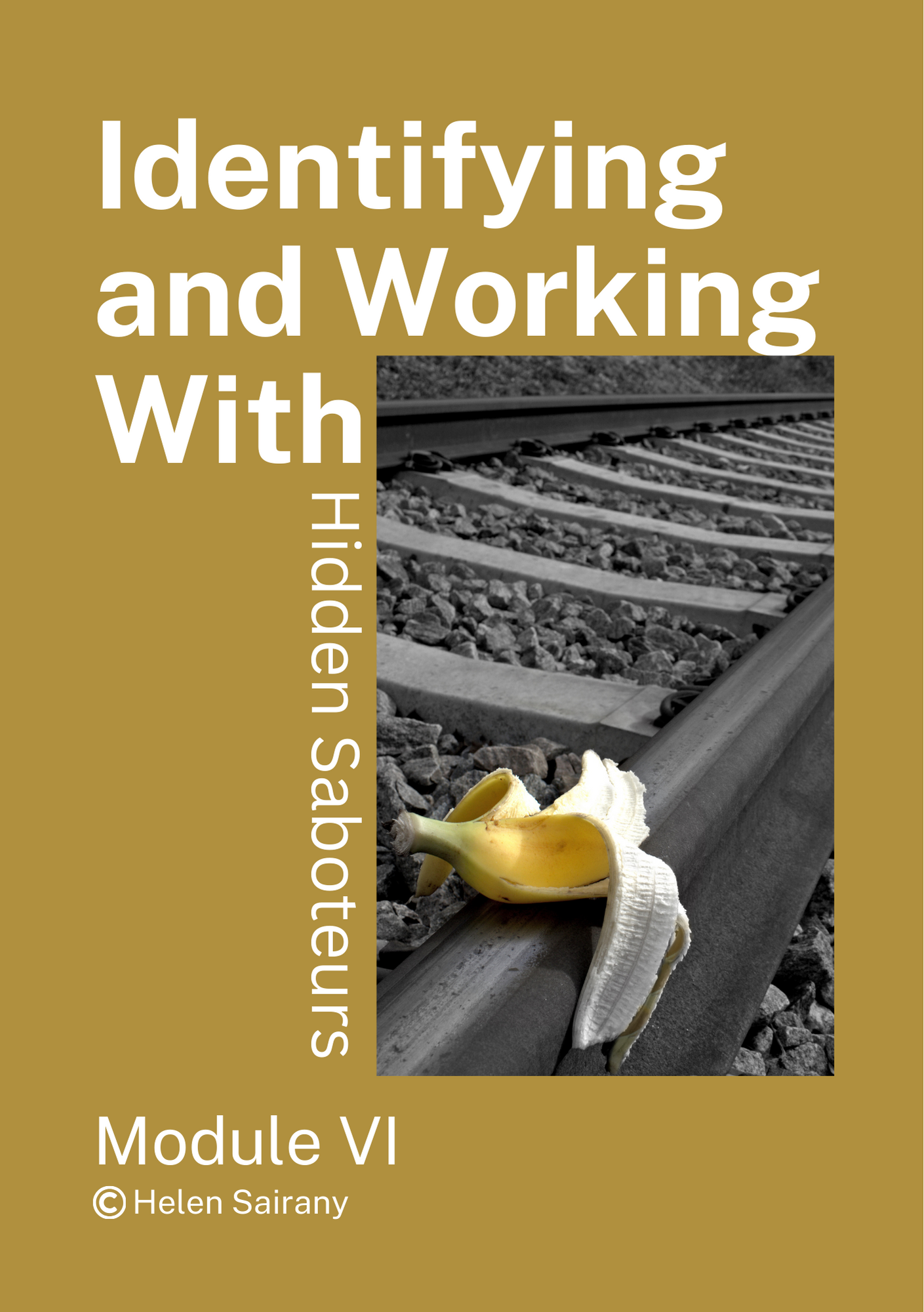
Sherzad Chamine coined the term “Saboteur” to describe the negative inner voices that undermine our wellbeing, relationships, and performance.
In this course, Dr. Helen Sairany discusses the Saboteurs as the voice of the wounded inner child and proposes practical approaches to nurturing the voice to establish effective relationships.
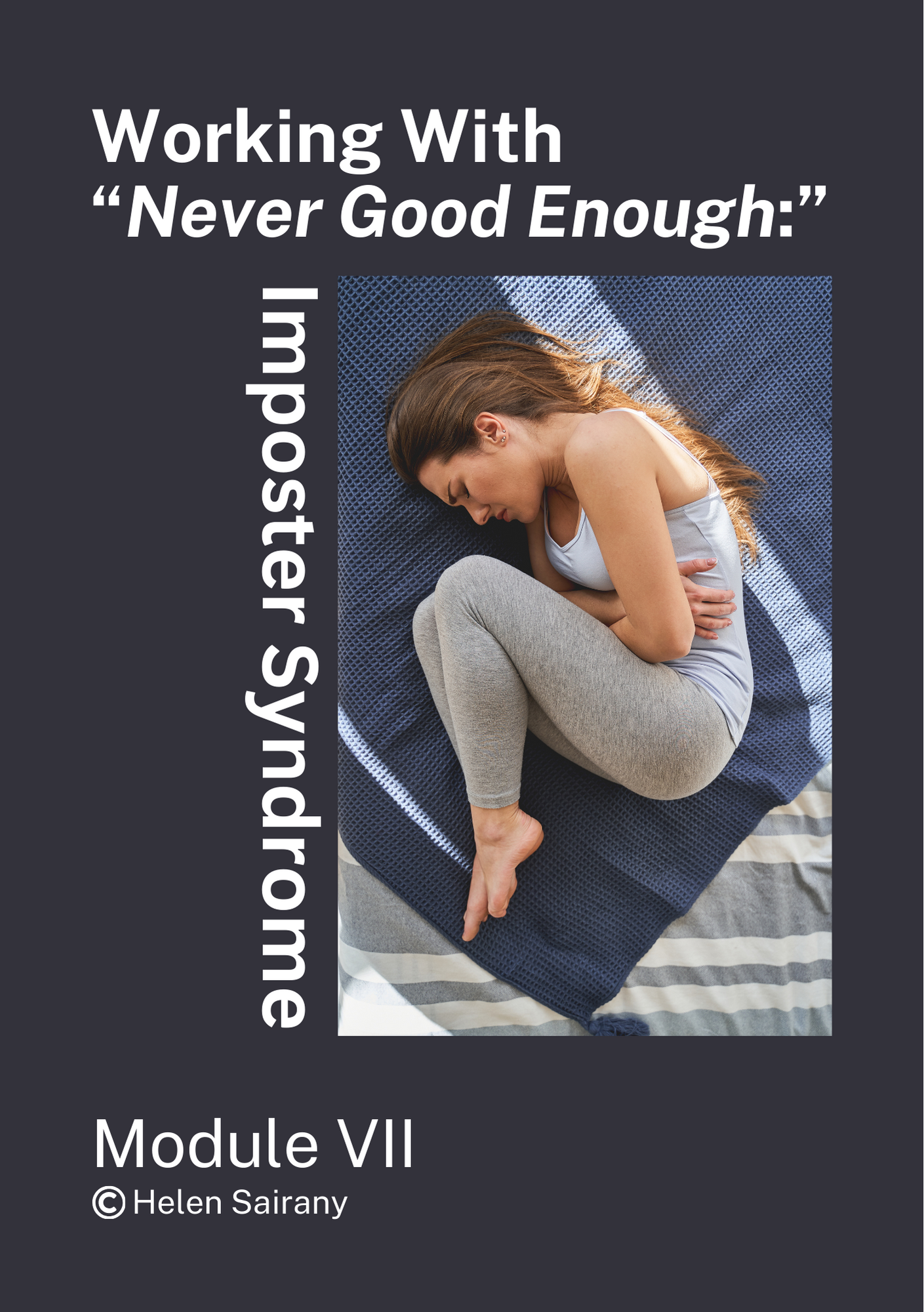
Do you ever feel like you’re not good enough for a job, relationship, or recognition? Do you feel like you’re constantly “faking it until you make it,” one step away from being exposed as a fraud? You’re not alone.
In this course, Dr. Helen Sairany reviews imposter syndrome as a trauma response and proposes effective approaches for organizations to combat imposter syndrome.
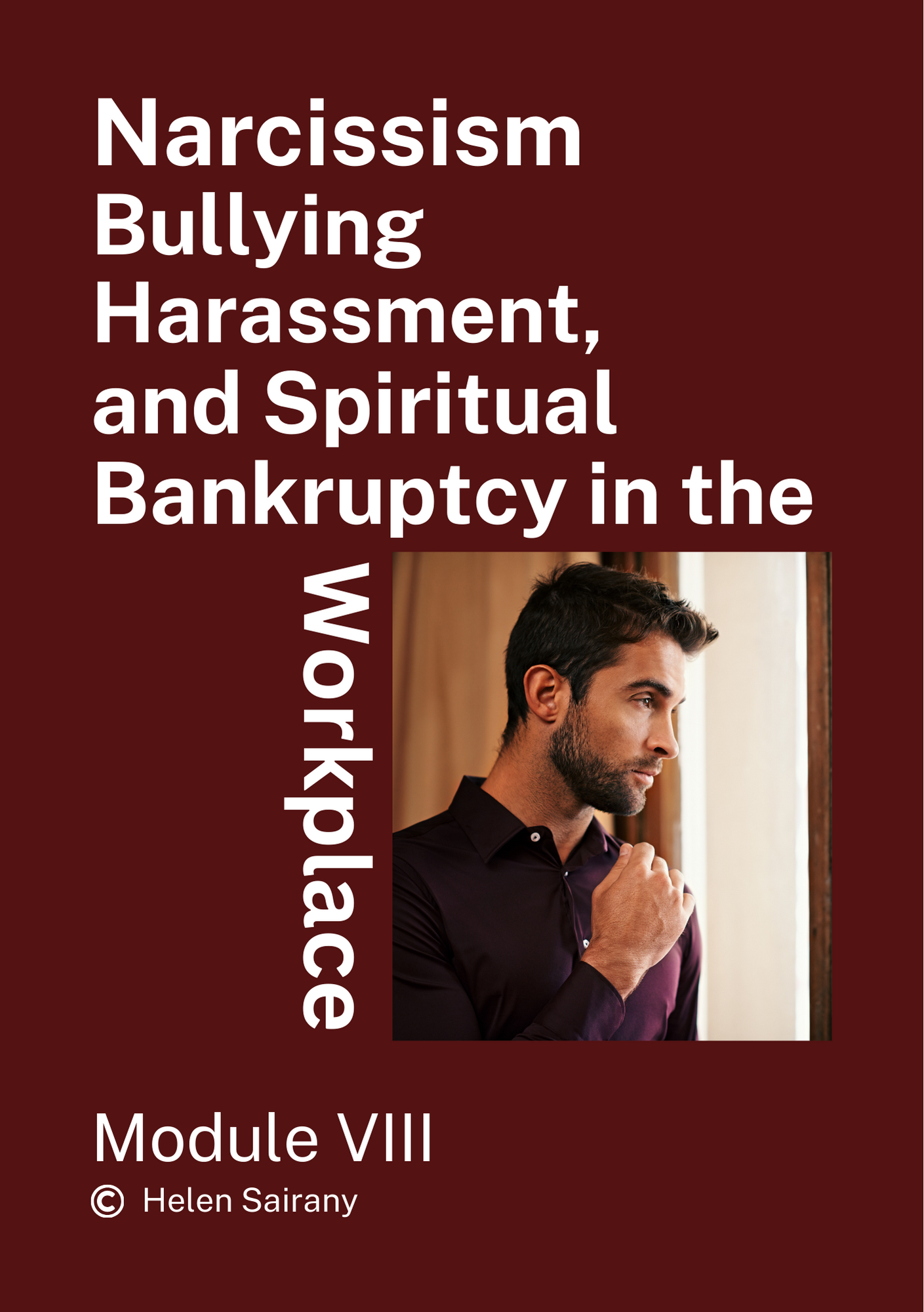
Research shows that many leaders have narcissistic traits. It’s not rational to put someone without empathy or compassion in charge. These leaders not only hurt their employees, but also their loved ones.
In this course, Dr. Helen Sairany explores narcissism, bullying, and harassment and how it leads to spiritual bankruptcy in the workplace.
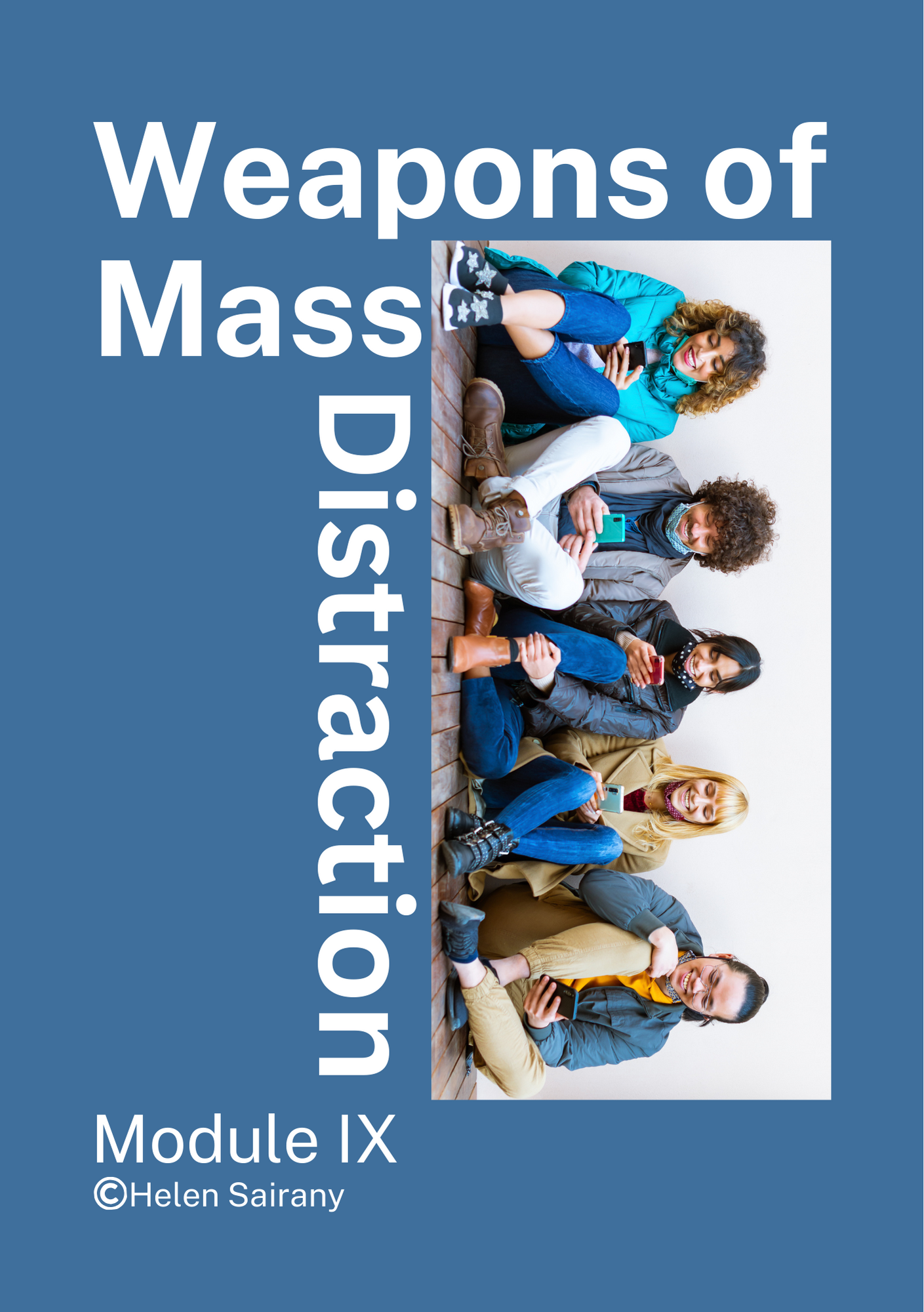
Smart devices are addictive and distract people. They constantly view social media platforms for dopamine surges. Technology has hijacked people’s priorities.
In this course, Dr. Helen Sairany describes the era of mass distraction, its impact on nervous system regulation, and approaches to taper the excessive use of smart devices.
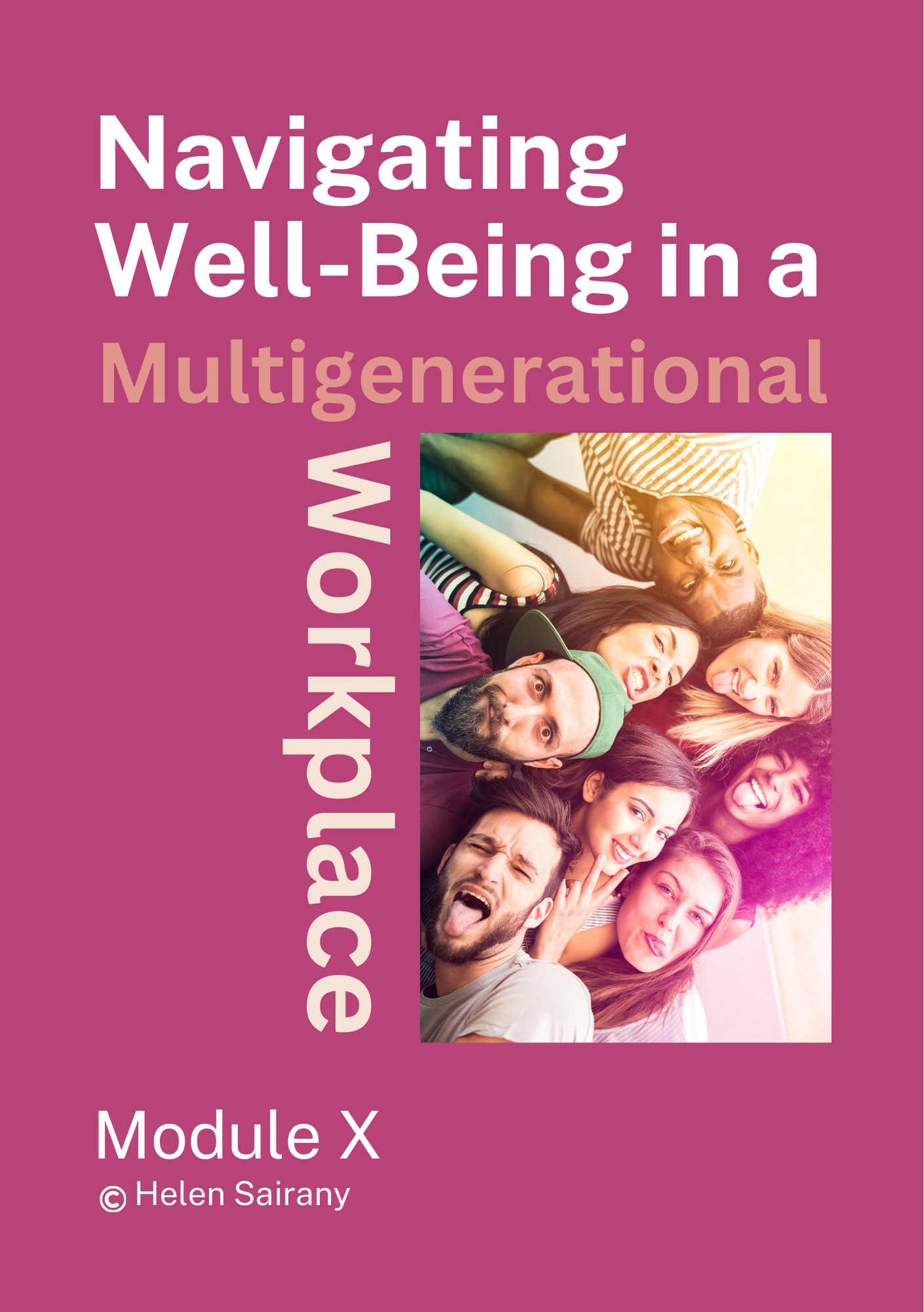
Each generation and person within it is unique and should not be judged based solely on their generation.
In this course, Dr. Helen Sairany will identify the four generations, generational gap, and how to effectively lead generations Y and Z

Codependency involves emotional, spiritual, physical or mental enmeshment with a loved one due to a lack of boundaries in the family system.
In this course, Dr. Helen Sairany discusses codependency, role of boundaries, and effective approaches in implementing healthy boundaries at work.

“Belonging” is more than just a buzzword—it’s the foundation of a thriving workplace culture. ‘Belonging’ has become a pivotal element of a trauma-informed culure. Belonging is when employees feel safe bringing their whole human selves to work.
In this course, Dr. Helen Sairany explains what it takes to foster a culture of belonging.

Discover the deep connection between gut health and overall mental and emotional well-being. In this course, Dr. Helen Sairany will guide you by tuning into your body’s sensations to identify signs of inflammation. Through targeted diet and lifestyle modifications, you will master mental clarity, regulate your nervous system, and achieve a balanced life.
Dr. Sairany designed Navigating Gut Health through Gut-Brain Connection to empower you with knowledge and practical strategies for optimal digestive health and holistic wellness.

Incorporating good breathing habits into your daily routine can promote healing and well-being. Proper breathing positively impacts our health by reducing stress, relaxing our muscles, and decreasing perspiration. When our blood is well-oxygenated, it becomes more difficult for viruses and bacteria to thrive in our bodies.
In Breathing: The Master Key to Self-Healing, Dr. Helen Sairany explains how the body, mind, and spirit are interconnected and how mastering breathwork can address all three for healing.

Generational trauma refers to the trauma that is experienced and passed down from one generation to the next. It originates when a group undergoes a traumatic event, which leads to economic, cultural, and familial distress. In response, individuals belonging to that group may develop physical or psychological symptoms as a result of the traumatic experience.
In Generational Trauma: Breaking the Cycle of Adverse Childhood Experience, Dr. Helen Sairany expands on generational trauma through epigenetics and racial trauma.

The mind of a person with Attention-Deficit/Hyperactivity Disorder (ADHD) is constantly in motion. It’s like a restless bird that can never settle down. These individuals are not necessarily looking for a cure or recovery from a disease but rather a way to return to their true selves, which is also an essential part of healing from trauma.
In Adult ADHD and Childhood TRAUMA, Dr. Helen Sairany will discuss the impact of trauma on scattered-mindedness.
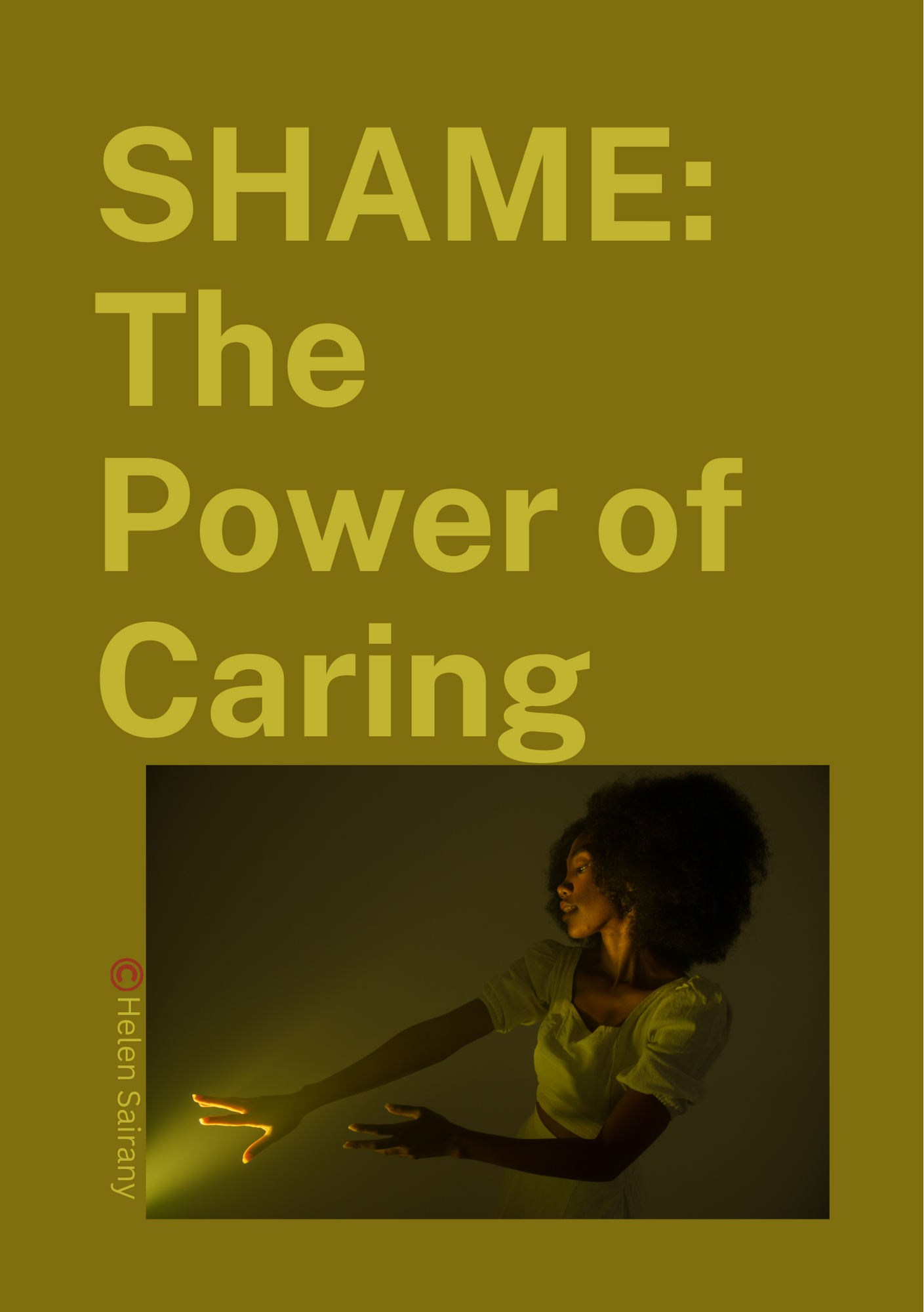
People who experience shame often fear rejection and may resort to avoidance tactics to escape the pain. If not adequately treated, shame can intensify, leading individuals to engage in behaviors that can increase their feelings of shame.To effectively deal with shame, it’s essential to understand its neurobiology and why it can be so challenging to alleviate this deeply ingrained emotion.
In SHAME, The Power of Caring, Dr. Helen Sairany delves into shame and its connection to childhood trauma, proposing strategies to empower program participants to overcome shame.

Addiction, just like any other condition, begins as an adaptive response to a maladaptive environment—an attempt to cope with pain.
Although there has been progress in terms of more humane and compassionate views about addiction, many dangerous myths about addiction still exist in various areas, such as the criminal justice system, healthcare, and higher education.
In The Addict in All of Us, Dr. Helen Sairany takes a grounded, humane, and holistic approach to addiction. In addition, she explores the impact of early life experiences and exposure to adversity on addiction.

Roughly 70% of employees in the United States have suffered a traumatic experience by the time they are 18. From the time they leave high school to start their postgraduate training, healthcare providers have experienced tragedy, loss, neglect, or abuse. The social, emotional, and mental impact of this trauma surfaces and is often exacerbated due to the stress of challenging work conditions. When healthcare providers experience trauma, collaboration, and innovation, come second to feeling safe.
In Trauma-Informed Workforce for a Sustainable Model, Dr. Helen Sairany demonstrates how a trauma-informed workforce improves employee productivity, reduces avoidable absenteeism, and contributes to provider and staff wellness.

Trauma-informed care is an approach that shifts the focus from asking, “What’s wrong with you?” to “What happened inside of you because of what happened to you?” This approach acknowledges that healthcare organizations and care teams must thoroughly understand a patient’s past and present situation to provide adequate healthcare services with a healing orientation.
In Trauma-informed Care for Practice Growth and Sustainability, Dr. Helen Sairany demonstrates how trauma-informed practices can improve patient engagement, treatment adherence, and health outcomes, reduce avoidable care and excess costs for healthcare and social service sectors, and contribute to provider and staff wellness.
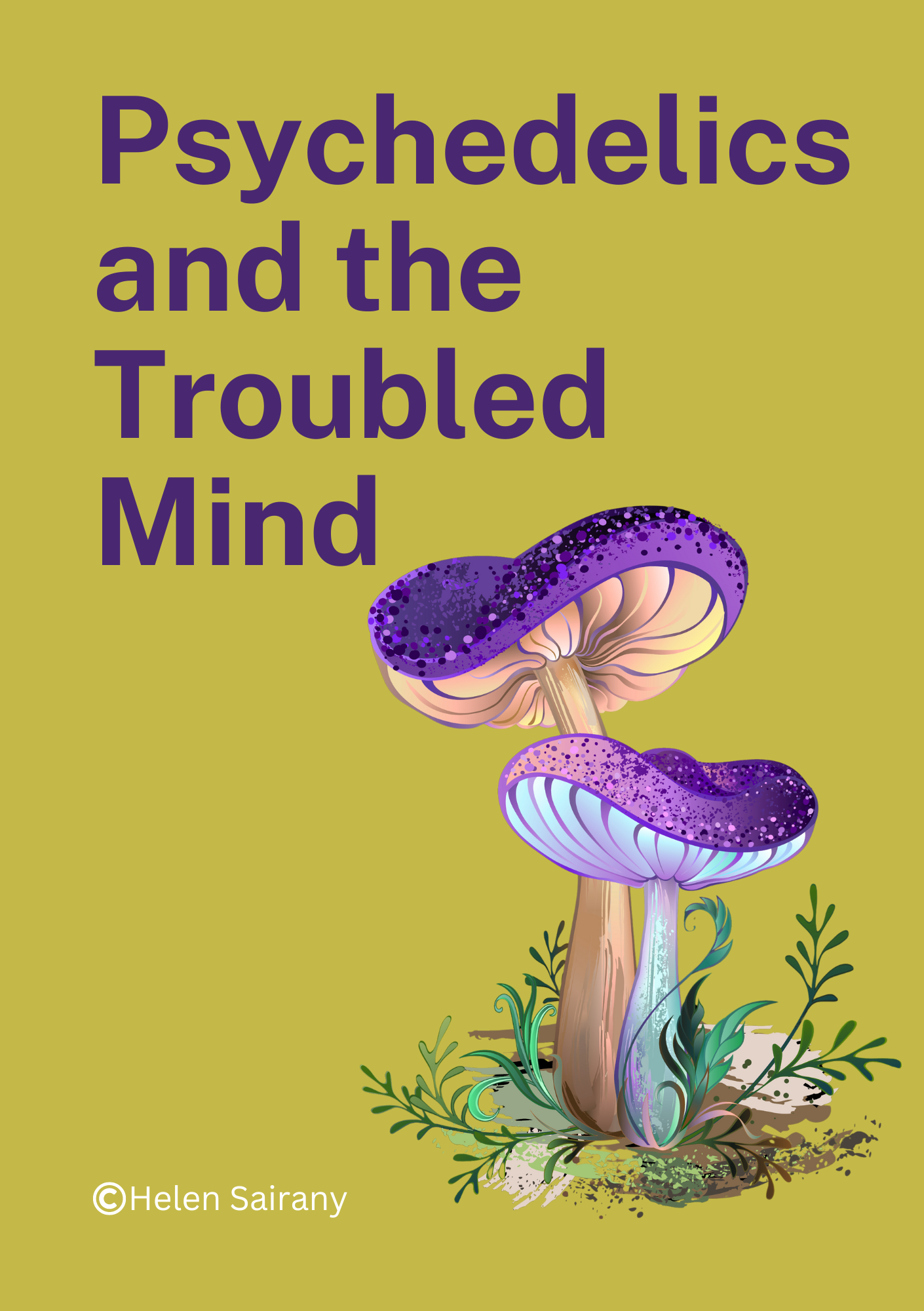
Recent advancements in health sciences have discovered the potential of psychedelics in treating mental and behavioral issues such as anxiety, depression, post-traumatic stress disorder, and addiction. Despite the rising scientific and public interest in this field, there is still no consensus on how to combine psychotherapy and psychedelics or determine their overall effectiveness effectively.
In Psychedelics and the Troubled Mind, Dr. Helen Sairany discusses the potential mental health benefits of psychedelics and reviews the latest evidence supporting these claims.

In this seminar, participants will develop a foundation for creating a trauma-informed practice that can have a greater impact on them, their patients, and those in their charge. This seminar is designed to promote higher job satisfaction, better work-life integration, and less burnout for participants and their employees, resulting in a more informed and compassionate workforce.

In this seminar, participants will develop a foundation for creating a trauma-informed practice that can have a greater impact on them, their patients, and those in their charge. This seminar is designed to promote higher job satisfaction, better work-life integration, and less burnout for participants and their employees, resulting in a more informed and compassionate workforce.
Explore for Intellectual Journeys

FREE Masterclass!
Join the Trauma-Informed Warrior Waitlist: With us by your side, you can start your journey toward regulating your nervous system and overcoming your self-sabotaging patterns. My upcoming Masterclass is on August 6 and 7.